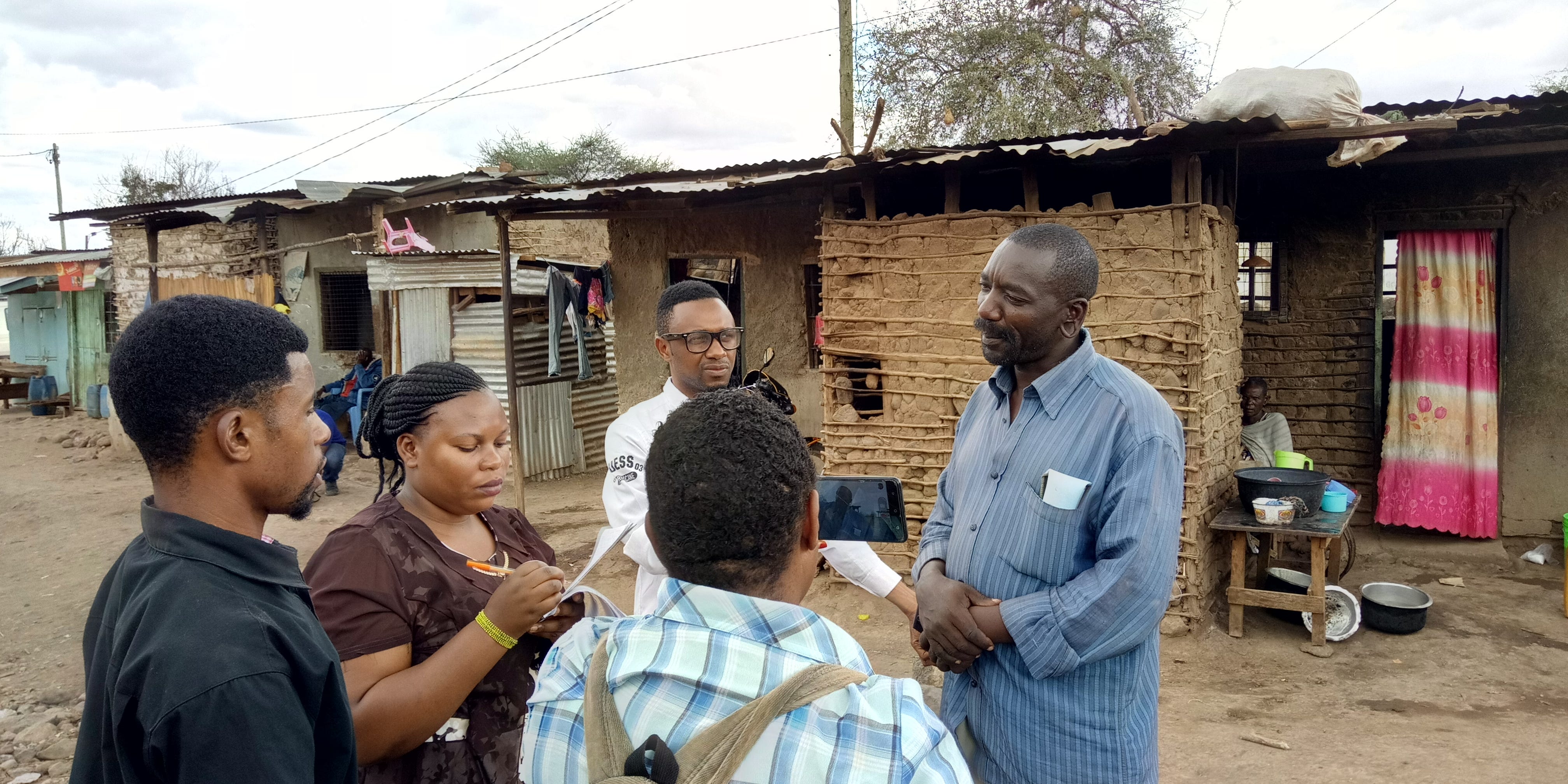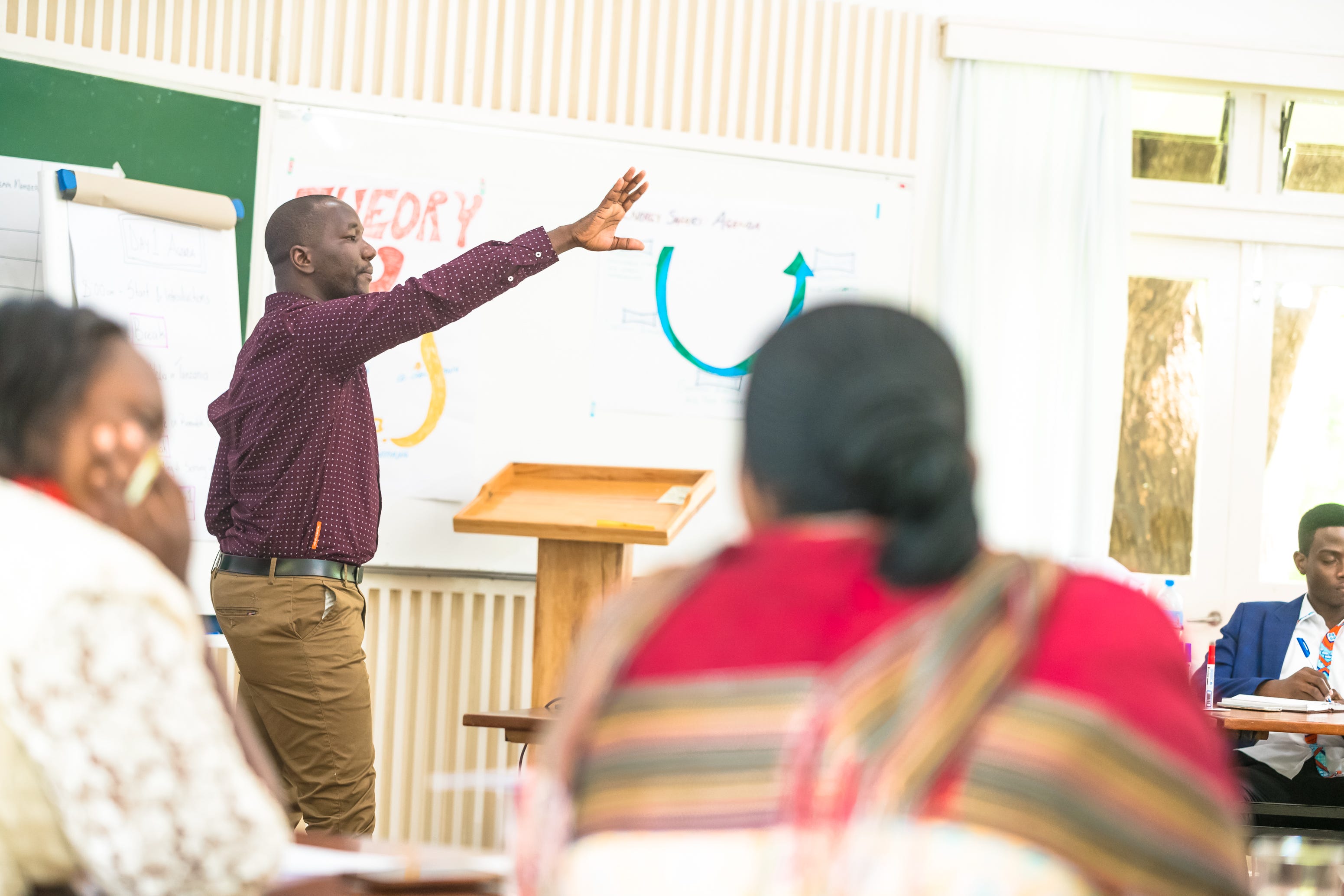By Nuzulack Dausen & Tulinagwe Malopa
- The drastic changes in the media industry has forced journalists to update themselves constantly.
- Nukta Africa is helping journalists and other storytellers to exploit emerging journalism skills that is why set to introduce short courses from early November.
The evolution of journalism is simply a story that can be told by any journalist in the field or anyone has witnessed the transformation of prestigious industry. A lot have changed overtime from news collection, processing, dissemination and consumption behavior.
The industry has changed from depending journalists to provide breaking news after hours or a day to a time where any one in the community can generate news fast and share with the public instantly.
From using the primitive tools in news collection and dissemination such as notebooks, pen or old model analog cameras, to a time where everyone can use his or her mobile phone and many other digital tools in news gathering and storytelling. These stories can be published in all types of media: text, audio, video and pictures.
The drastic changes in the media industry has simply taken us (journalists) to the world where you need constant updates of skills sometimes almost everyday to remain relevant in the market and provide quality news stories in friendly formats.
Unlike the past, some of these emerging skills in journalism are not available in our prestigious universities or colleges.
These skills such as data storytelling, fact checking, uses of various emerging digital tools such as Google Earth or 360 videos are often provided by institutions or companies mainly from the west which are investing hard to learn and exploit these skills and share with journalists.

Absence of a reliable center for emerging journalism skills in Tanzania has disadvantaged practicing journalists as well as media students who are supposed to be well prepared for the ever changing market.
To help Tanzania’s media industry compete with the world, we need to fill in the existing knowledge gaps, which is our main reason why established Nukta Africa, a digital media and technology company that specializes in research, training and development of data and digital driven news content.
Despite constant changes in the media industry, there are multiple skills that any journalist should not miss. Those skills include:-
Digital Skills
There may be journalists who take their mobile phones as just mere handsets that facilitate communication with sources, without knowing that the same handset can be considered as a newsroom.
National Council for the Training of Journalists (NCTJ) emphasises that the use of digital gadgets like mobile phones make the reporting faster and easier than the past.
Journalists who can use their smartphones for quality journalism such as taking pictures, videos, writing, editing and disseminating news are highly likely to secure jobs at any news organisation in the world or work as successful independent online news publishers.
Beside using smartphones, journalists need to know how to use basic digital tools or platforms that can add value to the stories they produce or increase engagement with their audience. There are many open source digital tools like Juxtapose, Google Maps, Google Earth, Atlas etc which when used well can uncover hidden stories we never thought such increase in urbanisation, land conflict and climate change.
The ability to demonstrate what we need to tell through digital tools helps journalists attract more audience attention and deliver the complex message fast.
For instance, Nukta Africa uses these tools in storytelling and training journalists to explore insights that cannot easily understood without illustration or visualisations.
Data Literacy
There is buzzing word currently which says data is the new oil. Everything we do now is all about data from our social media accounts details to our monthly bills. Also, governments produces data everyday including largest surveys of which some consume large amount of taxpayers money. However, few are used my journalists to produce impactful stories that can help make decision on their daily lives.
With all these data on our disposal, journalists requires to have data journalism skills that will enable them question numbers and uncover hidden stories. Data-driven stories are key in boosting transparency and accountability in both public and private sectors.
Most of the skills needed in this area includes the ability to know various sources of data, scrap, analyse, visualize and narrate such data stories in the way even our grandmothers in villages understands. Data literacy not only equip journalists to produce unique stories that can compete in the market but also prepare them to work in any industry and escape the ongoing media retrenchments.
Apart from journalistic benefits, data-driven stories help the public make decisions. A farmer waits for the commodities data to sale his or her produce. Also, somewhere a customer is monitoring the same data to buy affordable and quality products.
Though data journalism is uncommon in our higher education, we at Nukta Africa, we have decided to offer cost friendly and localised training that would bridge the knowledge gap existing in the market.
Strive to be a multimedia journalist
Before recent digital transformation, it was uncommon to see one newsroom is producing newspapers and video content at the time. A radio station was just a radio station even if it had a sister television station. The radio station staff were just dedicated staff the same to Tv guys. However, it’s quite different today.
Today our newsrooms are becoming much more converged and multimedia. Print newsroom are embedding online Tvs and podcast production in their newsrooms. Radio stations are recording their interviews and air them live on Youtube.
Most of the content produced is disseminated in various types of media such as text, pictures, data visuals, videos and audio apart from those going to the newspaper. Largest print media companies like Mwananchi Communications in Tanzania, are the one leading on digital transformation and they are not longer print media but multimedia.
For the journalists to survive in such converged newsrooms, they need to have multimedia skills that will help them fit in the market. There is no newsroom being print or online like Nukta would hire or work with individual who is single skilled in either radio or newspaper alone .
Ready to be a journalist now just be a text, and audio-visual person. You will win.
Fact Checking skills
With ever increasing fake news online, a modern journalist has no option than to have skills how to fact check images, information, social media posts and videos.
A recent report released by the Open University says one of the conditions which make a journalist or a media to be trusted by the audience is the ability to filter and search for facts before publishing or airing any news content.
We have been telling our trainees in our past training session that fact checking not only make you and your news organisation credible, it also prevents unnecessary damage to the community.
Before feeding the audience, a journalist must thrive to ensure the information presented are true and fit the context.
Analytical Skills
Its has been common for many journalists to report what happened famously known as “He/she said journalism”. However, with the growing citizen journalism and increase in uptake of social media news, such kind of reporting is becoming obsolete.
Like any other crucial career, journalists required to have high analytical skills that would help them to develop stories which will go beyond the traditional 5Ws and H. We need to answer basic questions like “So what?” or “Why should we care?”
The ability to analyse and contextualise the content you develop, is one of most lucrative skills needed in the content industry by now. Fewer journalist have these skills.
To be a good analytical journalist, you need to get more insights from various sources and highlights the meaning of such content in every work you do. Every time ask yourself: What does this mean?. This analytical ability distinguish common journalists and great journalists. Just decide which type of journalist do you want to be.
Aggressiveness
Aggressiveness is one of the most required trait required by any individual be a journalist or farmer. However, journalists need to be more than the average.
To be a successful journalist, you need to be more aggressive in finding story ideas, sources, new skills, and ways to navigate barriers to your reporting.
Digital Security
Digital transformation has not only changed news consumption behavior but also the level of security to media practitioners. With more works or communication done online, it is better journalists and their newsrooms protect themselves from external malicious attacks.
Internews says journalists need to have multiple skills on using a combination of tools and habits to prevents themselves and their sources from being secretly monitored by enemies. This also prevent access or tampering with their electronically-stored information or communications, and interfering with their electronic devices or programs. Digital security skills now for everyone not only investigative journalists.
These skills are just compliments to the basic skills that every journalist should have such interview and writing skills. All these skills are essential for any journalist’s career growth and in making an impact in the community.
Nukta Africa has recognized the need of sharing such emerging knowledge and skills that is why it has introduced short courses from early November 2019. In these short courses, journalism students, practicing journalists, public relations practitioners and researchers will be able to master one of these skills and equip themselves with the market changes.

Nuzulack Dausen is the CEO and Executive Editor of Nukta Africa who has training journalists on Data Journalism, Fact Checking and Multimedia Storytelling. Tulinagwe Malopa is the Communication & Event Management Lead at Nukta Africa. She also covers Innovation and Technology beat at www.nukta.co.tz.